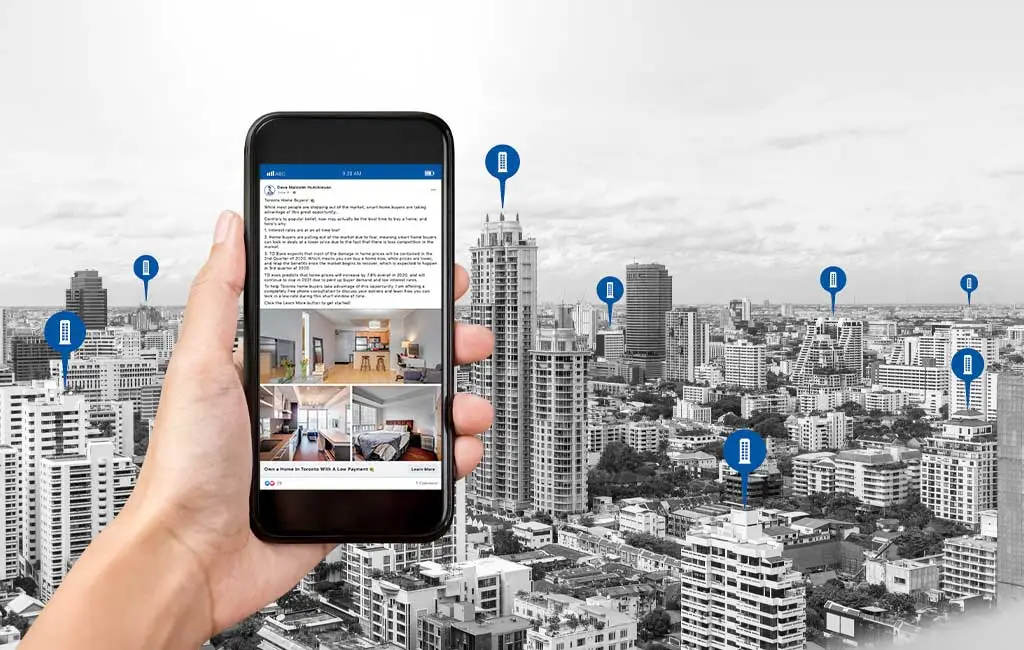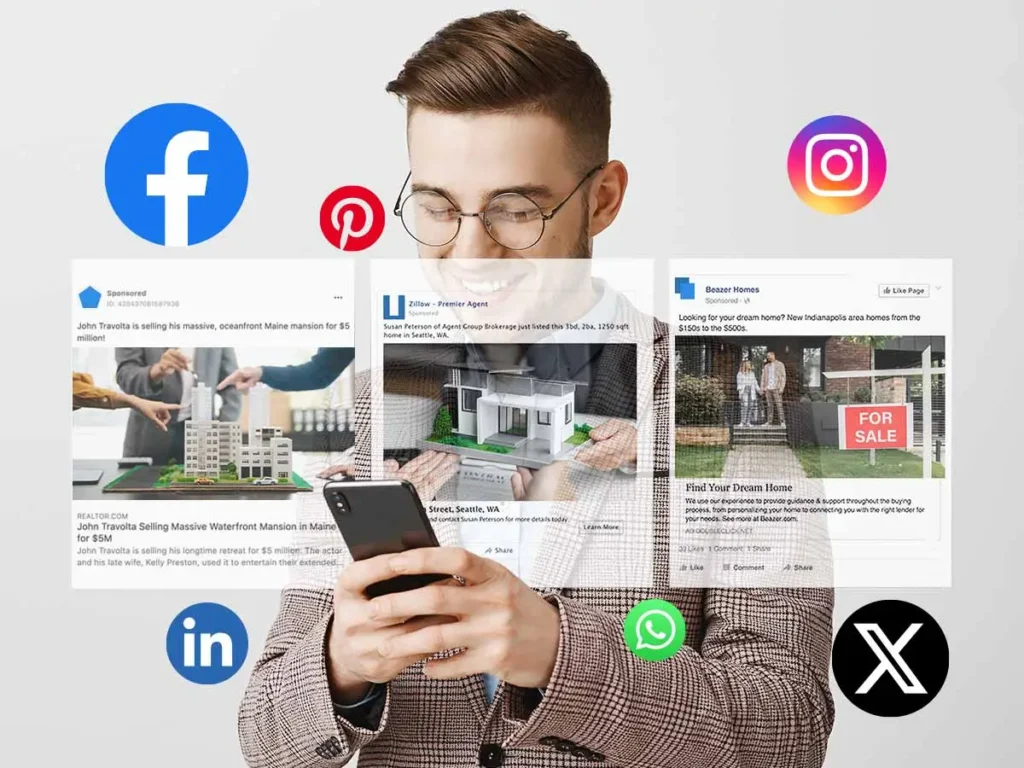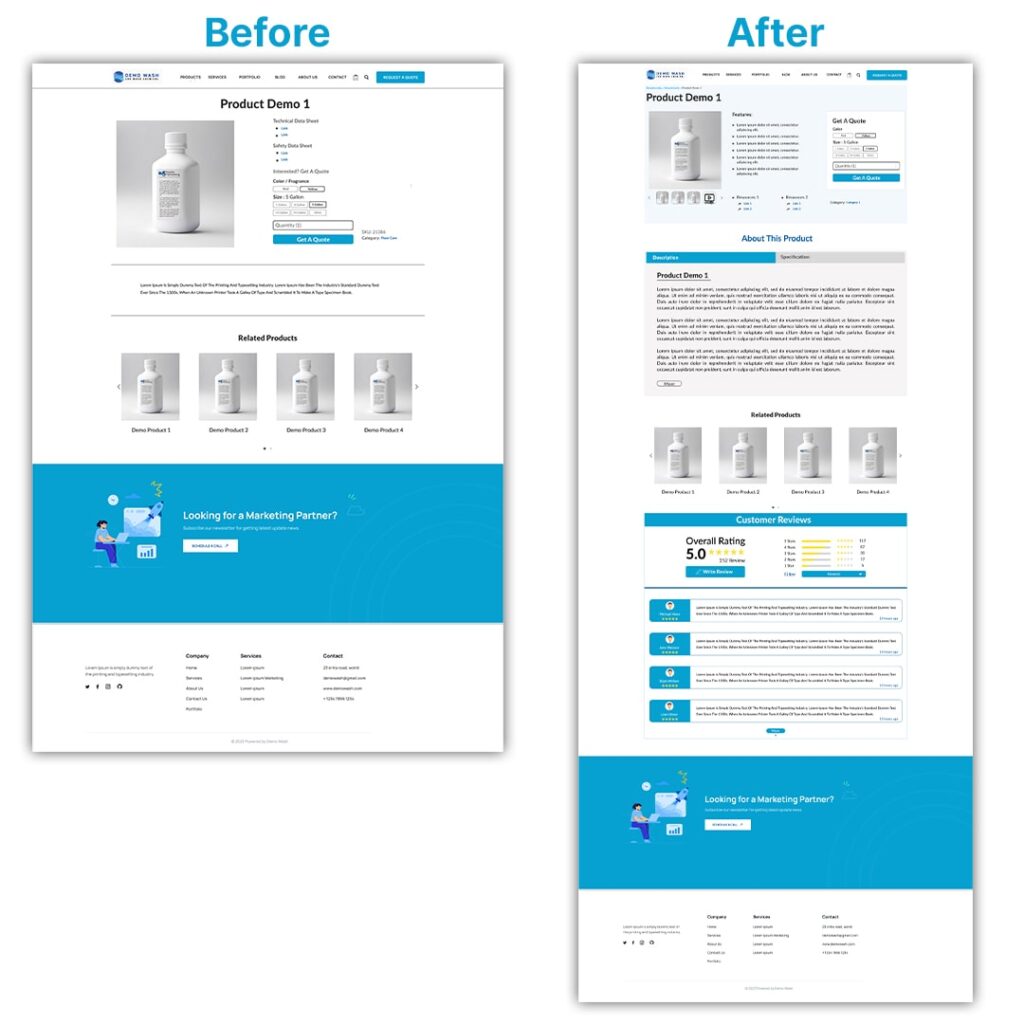The real estate industry is evolving rapidly, and social media has emerged as a powerful tool in this transformation. In this digital era, the real estate industry has seen a significant shift in how business is conducted. With the rise of social media platforms, the way properties are marketed and sold has evolved dramatically. From stunning property photos on Instagram to virtual home tours on Facebook, real estate social media management has become a powerful tool for agents and brokers looking to boost their business.
Whether you’re a seasoned realtor or a newcomer, this guide will equip you with the knowledge and strategies to utilize social media effectively. Doing so can set you on the path to business growth and success. So, let’s embark on this journey to unlock the potential of social media in real estate.
Welcome to our comprehensive guide on how Real Estate Social Media Management Can Boost Your Business. This article will delve into the strategic use of social media platforms to enhance visibility, engage with potential clients, and ultimately drive sales in the real estate sector.

Importance of Real Estate Social Media Management
In today’s digital landscape, social media has become vital for real estate professionals to connect with potential clients, showcase properties, and build a strong online presence. Platforms like Instagram, Facebook, and LinkedIn offer an unparalleled opportunity to reach a wide audience and establish credibility in the industry.
By leveraging these platforms effectively, real estate agents can humanize their brand. They can share engaging content, such as virtual property tours and client testimonials, and stay top-of-mind with their audience.
Furthermore, social media provides unique insights into consumer behavior and preferences through analytics tools. Real estate professionals can use this data to tailor their marketing strategies, target specific demographics, and gain valuable market insights.
Agents can foster trust and rapport with potential clients by engaging in meaningful conversations with followers and responding promptly to inquiries or feedback on social media channels. Ultimately, harnessing the power of social media in real estate not only enhances visibility but also cultivates long-lasting relationships essential for business growth.
Benefits of Social Media for Real Estate
Go through this run-down of the key benefits social media can offer to real estate businesses.
Increased Visibility and Brand Awareness
Increased Visibility and Brand Awareness in the real estate industry have become crucial for staying competitive in a crowded market. Social media platforms offer an incredible opportunity to showcase properties, engage with potential clients, and build a strong brand presence.
By utilizing visually appealing content such as high-quality property images and engaging videos, real estate professionals can significantly boost their visibility and capture the attention of potential buyers or sellers.
Moreover, leveraging social media allows real estate agents to target specific demographics and reach a wider audience beyond their local market. This increased exposure enhances brand recognition and elevates credibility within the industry.
Furthermore, professionals can position themselves as trusted authorities in their field by consistently sharing valuable content, engaging with followers, and participating in conversations relevant to the real estate market.
Overall, heightened visibility through social media translates into expanded brand awareness. That establishes a solid foundation for long-term success in the real estate sector.

Targeted Advertising
Targeted advertising is a game-changer for real estate professionals enforcing the power of social media. With advanced targeting capabilities, real estate agents can reach potential buyers based on their demographic, geographic, and behavioral attributes. This enables them to tailor their advertising messages to specific audiences, maximizing the impact of their marketing efforts.
By utilizing targeted advertising on social media platforms like Facebook and Instagram, real estate professionals can showcase properties directly to individuals. Some buyers are most likely to be interested in them. This saves time and resources and increases the likelihood of generating quality leads.
On top of that, targeted advertising allows for a more personalized approach. It creates a connection with potential buyers and enhances the overall customer experience. As a whole, targeted advertising through social media opens up new possibilities for real estate professionals to effectively promote properties and drive successful sales.
Lead Generation
Lead generation is the lifeblood of any real estate business, and utilizing the power of social media for this purpose has become indispensable. With platforms like Facebook, Instagram, and LinkedIn offering highly targeted advertising options, real estate professionals can reach potential clients with unprecedented precision.
You can create compelling content that showcases property listings or offers valuable insights into the real estate market. Thus, your agents can attract and capture leads through social media engagement.
Moreover, social media allows real estate professionals to build trust and credibility with their audience by sharing success stories, client testimonials, and behind-the-scenes looks at their operations. This transparent approach helps generate leads by establishing a strong rapport with potential clients before they even make direct contact.
And utilizing engaging call-to-action (CTA) buttons in posts can direct interested viewers to specific landing pages or sign-up forms. This can further facilitate lead generation through social media channels.
Social Media Strategy Tips for Real Estate Agents and Firms Planning
Planning is the cornerstone of any successful social media strategy for real estate agents and firms. In an industry where timing is crucial, taking the time to plan out content, campaigns, and engagement can make a significant difference in reaching potential buyers and sellers. Utilizing tools such as content calendars can help in organizing posts, ensuring consistency, and aligning with key events or seasonal trends in the real estate market.
Additionally, planning allows for a cohesive brand message across all social media platforms. Real estate professionals can ensure that their online presence resonates with their target audience while maintaining brand integrity by mapping out the overarching goals and themes. Likewise, having a premeditated approach to social media allows for a proactive response to market shifts or unforeseen challenges that may arise. And that can provide a sense of preparedness and agility in an ever-changing industry.

Audience Identify
Understanding your audience is a pivotal component of any successful social media strategy for real estate agents and firms. In real estate, your audience could encompass a diverse range of individuals, from first-time homebuyers to seasoned investors.
Identifying your target audience’s specific demographics, preferences, and pain points is crucial for tailoring your content and engagement strategies effectively. By conducting thorough market research and leveraging data analytics tools, you can gain valuable insights into the behaviors and needs of potential clients.
Moreover, recognizing the emotional triggers that drive your audience’s decision-making process can significantly enhance your social media approach. Whether it’s portraying aspirational lifestyle images or addressing common concerns about property investment, aligning your messaging with the psychological motivations of your audience can foster deeper connections and trust.
Besides, understanding the platforms where your audience is most active allows you to concentrate your efforts on channels that yield the highest engagement and conversion rates. Considering these nuanced aspects of audience identification can elevate real estate professionals’ social media initiatives to resonate more authentically with their target market.
Stunning Visuals
In the competitive world of real estate, stunning visuals can be a game-changer when it comes to social media strategy. With the rise of visual platforms like Instagram and Pinterest, it’s crucial for agents and firms to invest in high-quality photography and videography. Aerial drone shots, 360-degree virtual tours, and professional photography can showcase properties in their best light, capturing the attention of potential buyers scrolling through their feeds.
Beyond just property photos, leveraging stunning visuals can also help build a brand identity for real estate professionals. Consistent color schemes, filters, and visual themes across social media profiles can create a cohesive and memorable aesthetic that distinguishes an agent or firm from the competition.
Additionally, incorporating visually appealing infographics or data visualization can communicate market trends and statistics in an engaging way. Simultaneously, it can position agents as knowledgeable experts in their field. By prioritizing stunning visuals in social media content, real estate professionals can effectively capture the attention of clients and stand out in a crowded digital landscape.

Customer Service Priority
Customer service should be the top priority for real estate agents and firms when implementing a social media strategy. With the competitive nature of the industry, providing exceptional customer service on these platforms can set an agent or firm apart from its competition. Promptly responding to inquiries, comments, and messages shows potential clients that you are attentive and dedicated to meeting their needs.
What is more, personalized interactions on social media can help build trust and rapport with clients, leading to stronger relationships and increased referrals. Real estate agents should leverage social media as a platform not just for promotion, but also as a channel for actively engaging with current and potential clients.
Educate Customer
Educating customers is a crucial component of a successful social media strategy for real estate professionals. By providing valuable and informative content, real estate agents and firms can position themselves as trusted authorities in the industry. Consider creating blog posts or videos that answer common questions about the home buying process. They can offer tips for selling a property quickly, or provide insights into market trends. This not only demonstrates expertise but also fosters trust and credibility among potential clients.
Furthermore, educating customers through social media can help to streamline the sales process. By proactively addressing concerns and providing relevant information, agents and firms can attract more qualified leads who are already well-informed about the real estate market.
Utilizing popular social media platforms like Instagram, Facebook, or LinkedIn, you can share educational content tailored to your audience’s needs. This way, you can set real estate professionals apart from competitors and establish them as go-to resources for anyone looking to buy or sell property. Ultimately, an educated customer is more likely to make confident purchasing decisions, making it a win-win for both the client and the agent or firm.

Community Building
Community building is a crucial aspect of social media strategy for real estate professionals. By focusing on building a community, agents, and firms can create a loyal and engaged audience that will ultimately drive business growth. One effective way to build community is by creating valuable and relevant content that addresses the needs and concerns of potential clients. This could include informative blog posts, engaging videos showcasing local neighborhoods, or hosting live Q&A sessions to address common real estate questions.
Another helpful strategy is to actively engage with the community through comments, likes, and shares on social media platforms. By genuinely interacting with followers, real estate professionals can foster trust and credibility within their online community.
As well, organizing local events or collaborating with other businesses in the area can further strengthen the sense of community around an agent or firm’s brand. In fact, prioritizing community building on social media can lead to long-term relationships with clients and increased referrals within the local market.
Harnessing the Power of Social Media
To sum up, the power of social media in real estate cannot be underestimated. Real estate professionals can elevate their brand exposure and attract a wider audience by harnessing the reach and connectivity of platforms like Facebook, Instagram, and LinkedIn. It’s not just about posting listings; it’s about creating compelling content that resonates with potential buyers and sellers, fostering genuine engagement, and building trust.
In addition, using social media for real estate also opens doors to targeted advertising and advanced analytics. With the ability to customize ads based on location, demographics, interests, and online behavior, real estate businesses can effectively reach their ideal audience with precision.
The data insights gained from social media platforms also offer invaluable information to fine-tune marketing strategies and stay ahead of market trends. In essence, leveraging the power of social media isn’t just an option – it’s necessary for those looking to thrive in today’s competitive real estate landscape.
FAQs
Facebook is the most popular social media platform for real estate agents, with 89% using it for their business. Instagram and LinkedIn are also commonly used, with 59% and 53% usage rates, respectively.
Social media is used in real estate to promote listings, generate leads, and build a brand. It helps agents establish relationships with potential clients, nurture existing ones, and cultivate a network of industry professionals. It’s also used to target potential buyers, advertise listings, showcase local market knowledge, and build relationships with clients.
According to the National Association of Realtors, 77% of realtors actively use social media for real estate in some way. Another report suggests that 63% of realtors use social media to promote listings.










